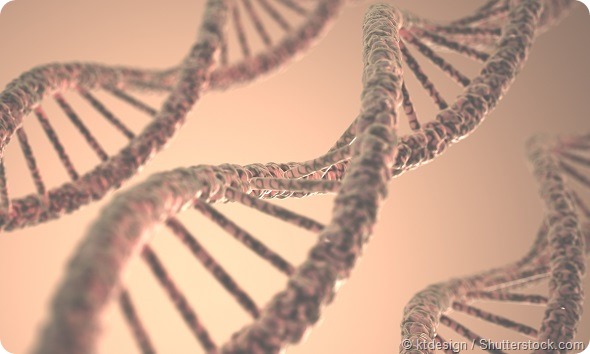A new treatment that involves editing DNA has been used for the first time at Great Ormond Street Hospital to successfully treat drug-resistant leukaemia.

Layla was diagnosed with an aggressive form of leukaemia when she was only 14 weeks old. Despite several rounds of chemotherapy treatment, the cancer returned. Having exhausted all available treatment options Layla's parents were told that palliative care was all that could be offered for their daughter.
However, there was a new experimental treatment being developed that had shown efficacy in mice and the researchers suggested that it may help Layla. Giving Layla a chance of survival, an emergency ethics committee and Layla's parents gave their consent for the experimental treatment to be used in Layla.
Professor Waseem Qasim, Professor of Cell and Gene Therapy at UCL ICH and Consultant Immunologist at GOSH, explained:
The treatment was highly experimental and we had to get special permissions, but she appeared ideally suited for this type of approach."
The treatment involved Layla being given a small infusion of healthy donor T-cells that had been genetically engineered to include new genes in their DNA (UCART19 cells). These added genes protected the T-cells from a powerful leukaemia drug that would usually kill them and reprogrammed them to only target and kill leukaemia cells. After several weeks, it became apparent that the treatment was working and, after a month, she was well enough to go home. Around two months later, Layla was found to be cancer-free and was given a bone marrow transplant to replace her blood and immune system, which was destroyed during the treatment. She is still cancer free and doing well at home.
Since this treatment had never been used in humans before, there was no way of knowing how effective it would be, especially when Layla had such an aggressive form of cancer. The results so far have been spectacular. However, Professor Qasim warned:
We have only used this treatment on one very strong little girl, and we have to be cautious about claiming that this will be a suitable treatment option for all children. But, this is a landmark in the use of new gene engineering technology and the effects for this child have been staggering".
Full clinical trials to investigate the efficacy and safety of UCART19 cells in larger groups of patients and are due to begin early next year.